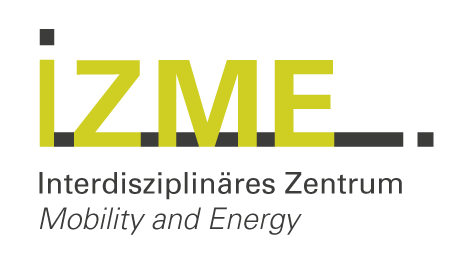Center for Smart Materials & Systems (CM@S)
Since its foundation in 2004, the Interdisciplinary Center CM@S (Center for Materials - Inspire Systems) has played a central role in fundamental changes in our daily lives. Materials research has always proven to be the starting point for innovations. A striking example is semiconductors, which serve as the basis for next-generation communications technology, enable quantum computing, and drive novel energy conversion systems.
What makes CM@S special is its interdisciplinary approach. Here, chemists, physicists and engineers work hand-in-hand to develop new materials, smart devices and systems that impact diverse areas of highest societal relevance. This collaboration spans 14 research groups from three different faculties, enabling broad expertise and a rich spectrum of knowledge. A prominent focus of the research activities is on the exploration of terahertz technologies. This research has the potential to fundamentally change the way we communicate, compute, and use energy.
Financially, CM@S is significantly supported by the German Research Foundation (DFG) with 65% and the European Union (EU) with 26%. This impressive funding underlines the recognition of the excellent research work and the international importance of the center. CM@S is thus not only an outstanding example of interdisciplinary research and cooperation at the University of Wuppertal, but also a pioneer in the research of materials, smart devices and systems that shape our society in a sustainable way.
Systems Research in Information, Communication and Media Technology (SIKoM)

The Institute for Systems Research in Information, Communication and Media Technology (SIKoM) was founded in 2012 as an in-institute of the University of Wuppertal at the Faculty of Electrical Engineering, Information Technology and Media Technology. SIKoM is financed by third-party projects from the state of North Rhine-Westphalia, the federal government and the EU and works on a variety of research projects with different orientations.
The institute focuses on interdisciplinary research on technical, economic and structural aspects of innovation processes influenced by the development of information and communication technologies (ICT) and media technologies.
SIKoM is characterized by an inter- and transdisciplinary research approach. Research activities focus on the investigation of complex systems, the study of interrelationships, interdependencies and changes, and the consequences of the digital transformation for the economy and society. The institute employs experts with a broad range of competencies, including engineering, economics, social sciences, as well as labor sciences and industrial psychology.
SIKoM's mission statement is based on the concept of the "quadruple-helix". This approach extends the traditional model of the "triple-helix" - consisting of state, science and economy - by a fourth dimension: civil society. This enables the integration of different social, regional and cultural contexts into innovation processes and thus creates a more comprehensive understanding of the development and implementation of ICT and media technologies.
SIKoM is thus dedicated to researching and shaping digital transformation and innovation processes from a holistic perspective that takes into account technical, economic, social and cultural factors.
THz research association
The Terahertz research association at the University of Wuppertal is an impressive joint project consisting of five chairs distributed across two faculties: the Faculty of Electrical Engineering, Information Technology and Media Technology and the Faculty of Mathematics and Natural Sciences.
THz research at BUW is closely integrated into the "Materials.Inspire.Systems" profile core and benefits from the support of the interdisciplinary Center for Smart Materials & Systems (CM@S for short). This center forms the bridge between basic research in the field of materials science and THz and sensor technology. Over the last ten years, the CM@S has developed into an outstanding strength of the Bergische Universität Wuppertal.
A notable feature of the THz research network is the extraordinarily successful acquisition of third-party funding, which has enabled the expansion of the infrastructure and significant awards. This includes one of the highly endowed European Research Council (ERC) Advanced Grants for THz research.
BUW's THz Research Alliance represents groundbreaking research in terahertz technologies and demonstrates the strength of interdisciplinary collaboration across faculties. With a clear focus on Materials.Inspire.Systems and the extensive support of CM@S, BUW is a key player in terahertz research.
Interdisciplinary Centre for Machine Learning and Data Analytics (IZMD)

Launched in 2019, the IZMD is a cross-faculty institution specializing in artificial intelligence, machine learning and data analytics. The center pursues two central pillars: first, scientific research in these areas, and second, transfer activities and collaborations with regional industry, civil society, public institutions and intermediaries, under the name "Bergische Innovationsplattform für Künstliche Intelligenz (BIT)".
The IZMD contributes to the advancement of knowledge in the field of artificial intelligence and data analysis, supports young scientists and promotes cooperation between the university and the regional economy.
Interdisciplinary Centre for Mobility and Energy (IZME)

The Interdisciplinary Center Mobility and Energy (IZME) was founded to address the pressing challenges of the transportation transition and sustainable energy supply. Against the backdrop of the global transition to a CO2-neutral energy supply, this represents one of the greatest tasks of the 21st century. There are extensive research activities on these topics at the University of Wuppertal, which are now bundled in the IZME.
The IZME concentrates on fundamental and application-oriented research topics that have a considerable influence on future mobility and energy supply with high social significance. The focus is on traffic planning, automated driving, energy supply, Big Data and data security, and infrastructure planning.
This center is the institutional basis for the profile core "Mobility and Energy", which is identified as a special focus of research in the University Development Plan 2021 to 2025 of the Bergische Universität Wuppertal.
Scientists from various faculties, including electrical engineering, information technology, architecture, civil engineering, economics and mechanical engineering, work together in the IZME. The goal is to create a visible center at an international level that drives cross-faculty interdisciplinary research and knowledge transfer. The IZME thus contributes to addressing the complex challenges in the field of mobility and energy with integrative research and offers promising opportunities for future projects.
